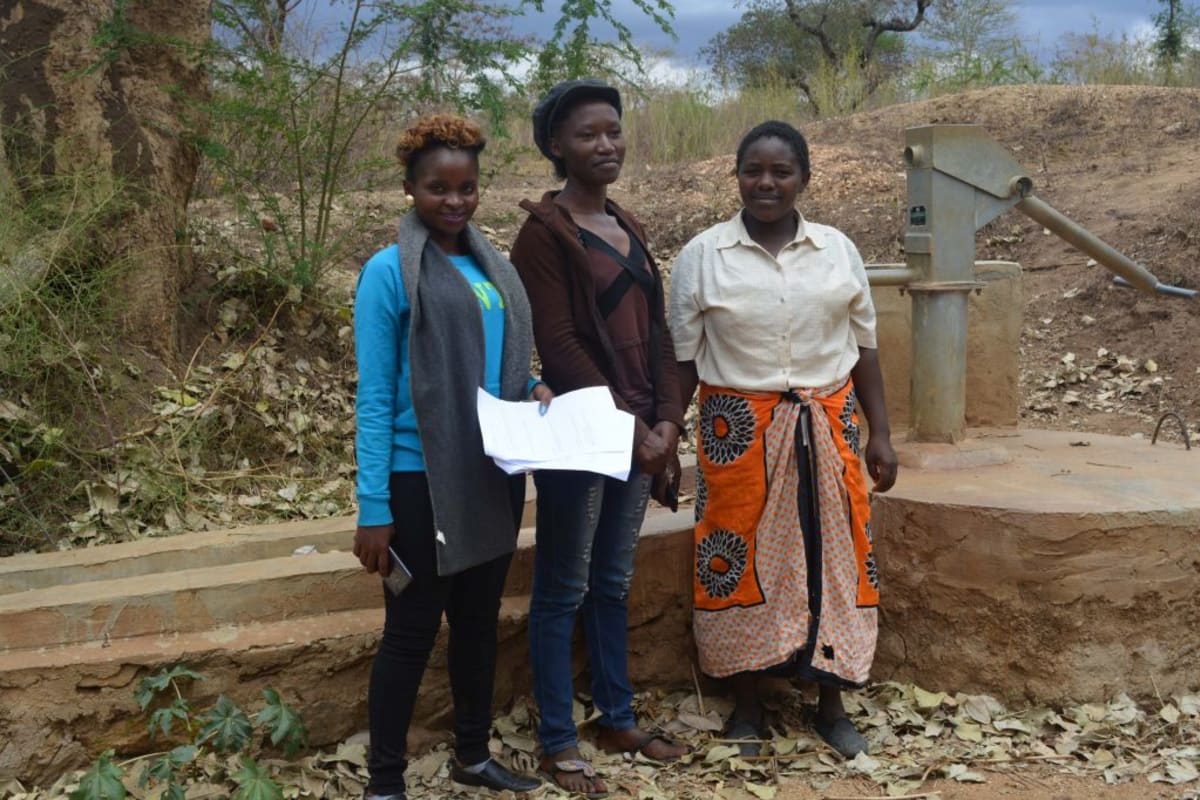A Year Later: Ngao ya Kiome Hand-Dug Well

A year ago, generous donors helped build a hand-dug well for the Ngao ya Kiome Self-Help Group in Kenya. Because of these gifts and our monthly donors, partners are able to visit project sites throughout the year, strengthening relationships with communities and evaluating the actual water project. These consistent visits allow us to learn vital lessons and hear amazing stories – we’re excited to share this one from our partners Mutheu Mutune and Titus Mbithi with you.
Community members used to have to travel all the way to Kithoni River, four kilometers away, to find water. Since the project last year, the community has used this water for so many things: they've started a successful tree nursery. Types of trees include fruit trees, timber and fuel trees. The fruit trees are at the flowering stage, especially the mango trees. They are expected to bring in good income and improve nutrition in many families.
Piles and piles of bricks have been made using this same water, and the people can now build better homes or even sell the bricks for income.
Christine Mbula Ngeta is the treasurer for her self-help group. She met us at the well to talk about how its impacted her life over the past year.
"We have been using the water for cooking, washing our clothes and also bathing. Our children are clean compared to before, when water was scarce. They could skip days without taking a bath... but with the project they are all clean and we are happy parents. The fact that the water is near, the children no longer spend a lot of their academic time going to fetch water and instead use that time in reading or doing their homework. That enables them to improve their performance.
Our livestock have enough drinking water because of the water source. We used to have a big challenge with the livestock, especially during the dry season because the sources of water were minimal and far and our livestock would mix with other livestock from different regions and this would promote the spread of diseases. The project has reduced this because we fetch for the livestock and let them drink from home. Some people also grow vegetables such as kales, spinach, and tomatoes and these have acted as a source of income as well as food."

Field Officer Mutheu Mutune interviewing Muendi Kyambi about how having this well has changed her life.
18-year-old Muendi Kyambi has also been using this well. "My life has changed because I no longer waste a lot of time going to fetch water from Kithoni River, which is far from our home. It used to be risky for me and my siblings going to fetch water after school because we would go back home very late after lining up for hours. At times, you would go back with no water but since the project came, we are happy. Waterborne diseases have decreased because my parents were trained on how to store the drinking water and treat it as well general cleaning. The water is usually soft and good for washing clothes because it saves a lot of detergents compared to hard water. I am even motivated to wash clothes and keep our home clean because there’s water available!" But she continued saying that since the adjacent sand dam is still young, it needs to keep building up more sand to store water: "Availability of the water in the well and in the dam is still low, and during the driest months of the year we are forced to look for other sources of water for watering our trees and also for the household use."
As the young sand dam continues to mature through the rainy seasons, building up sand and storing even more clean water, the hand-dug well will become more reliable.
Most of our other southeastern Kenya projects are like this too; they are systems that need time to mature in order to provide clean, reliable water throughout drought. We look forward to this happening here, and are excited to monitor the transformation!
The Water Project and our partners are committed to consistent monitoring of each water source. Our monitoring and evaluation program, made possible by monthly donors, allows us to visit communities up to four times a year. Read more about our program and how you can help.
See The Water Project in Christine Mbula Ngeta's Community »

